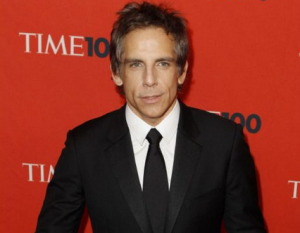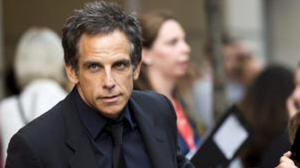
Director Noah Baumbach is one of the undisputed kings of indie film. His dry humor and understated delivery has bewitched audiences and attracted big stars to his projects. According to the LA Times, those stars, including comedy A-lister Ben Stiller were out at the Toronto International Film Festival for the premier of Baumbach’s new film, “While We’re Young.”
When speaking to the press about the inspiration for making the film, he jokingly said “middle-age.” And certainly the new film deals with the gap between generations. While Baumbach’s most recent work, 2012’s “Frances Ha” dealt with youth issues, this new film takes stock of how generations view one another.
Ben Stiller and Naomi Watts play a couple in their forties who become fascinated by the lives of another couple in their twenties, played by Adam Driver and Amanda Seyfried. The film not only hopes to look at the way that different generations view one and other, but also how advances in technology and changing trends affect the way people move through life in different ways.
“Something is going on in the movie that’s ‘wait, we’re old, the old people,” Stiller said to the audience post-screening, “With social media and everything going on,” he added, as a personal note, “it does make me feel outside of what’s going on a lot of the time.”
The social media driven world of the millennial generation plays a part in the film, though one of the actors playing one of the young people in the film commented that he has a complicated relationship with that technology.
“Twitter and Facebook make me scared,” Adam Driver said to the crowd, “There’s something valuable in boredom and not having access to everything.”
Ben Stiller has been playing forty-ish people at existential crossroads for a bit now, most recently in his directorial passion project “The Secret Life of Walter Mitty.”
But with the help of Noah Baumbach, he tackles things from a different direction in “While We’re Young.” The new indie, which world-premiered Saturday at the Toronto international Film Festival, has on its mind not just the usual tropes about career and relationships from movies on the subject, but shifting attitudes about topics such as privacy and creativity.
Shortly after his new film opens, Stiller’s documentary-filmmaker character Josh and wife Cornelia (Naomi Watts) find their lives energized when they meet an exciting young couple, Jamie and Darby (Adam Driver and Amanda Seyfried). The older pair covets the free-spirited artisanal ways of their new friends, seeing them as an antidote to the child-centric world of their contemporaries.
Soon, though, the veil is lifted, and what follows is an older generation’s more complicated view on younger people — by turns energized, jealous, fascinated and resentful — and the techno-fueled lives they lead.
“Something is going on in the movie that’s ‘wait, we’re old, the old people,” Stiller told the audience after the screening. “With social media and everything going on,” he added of his own life, “it does make me feel outside of what’s going on a lot of the time.”
 Joking that “middle age” was his inspiration, Baumbach said the film sprung from an idea he had about couples that he couldn’t quite crack, until he had a small epiphany. “Thinking about people of different generations,” Baumbach said, “motivated me to write it.” (Click over to this piece for my colleague Betsy Sharkey’s take on the director’s own evolution.)
Joking that “middle age” was his inspiration, Baumbach said the film sprung from an idea he had about couples that he couldn’t quite crack, until he had a small epiphany. “Thinking about people of different generations,” Baumbach said, “motivated me to write it.” (Click over to this piece for my colleague Betsy Sharkey’s take on the director’s own evolution.)
“While We’re Young,” which is seeking U.S. distribution, is rife with the kind of adjustments, psychological and otherwise, members of an older generation must make when they realize a baton has been passed. “It touches on so many things I identify with,” Stiller said. That’s true not just with gizmos themselves but further-reaching areas such as storytelling (“If everybody records everything, then what’s a documentary anymore,” Josh asks) and the appropriation of culture. “I knew this song when it was just bad,” Stiller’s character says when Driver uses Kenny Loggins’ “Danger Zone” as psyche-up music.
But “While We’re Young” is hardly a cri de coeur, just as it’s also not an easy piece of fogeyish fetishization. Josh and Cornelia actually have a reasonably good relationship in their own right, and not all is rosy in the Millennial world.
And for all the Facebook Generation assumptions, the younger couple is sometimes actually seeking to turn back the clock, embracing vinyl (most obviously) and occasionally even eschewing quick phone-based research (less so). Driver, the director’s go-to choice for Millennial embodiment these days, himself upended the perception when he told the audience that “Twitter and Facebook make me scared … there’s something valuable in boredom and not having access to everything.”
In the end, “While We’re Young” doesn’t stake out a position as much as it asks us to take stock of the shift, and the size thereof. When Cornelia questions Josh how he found her at a meeting with a person she didn’t want Josh to know about, he replies, “I follow him on Twitter. We can’t lie like we used to.” It’s only a small piece of the new world.